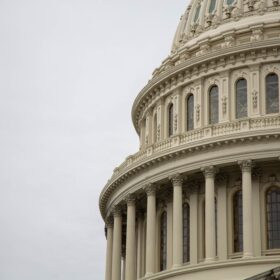As often happens in patent cases, a “small potatoes” legal issue can lead to a change in law that will certainly have significant impact on inventors and businesses for years to come. When the parties argued the matter of Thryv Inc. v. Click-to-Call Technologies LP, Chief Justice Roberts described what was at stake in exactly those terms, but the Court’s decision issued last week will be felt for years to come by enabling the United States Patent and Trademark Office to continue its efforts to weed out and invalidate “bad patents” through the inter partes review process introduced by the Smith-Leahy America Invents Act in 2011 without significant oversight by the courts.
Thryv presented a very technical issue: whether a patentee could ask a court to review the USPTO’s decision to commence an inter partes review (“IPR”), a process that frequently leads to the invalidation of issued patents. The Supreme Court held, in a 7-2 decision, that Section 314(d) of the Patent Act bars such judicial review even when the agency initiated the review in violation of a statutory time limit.
The decision clarified earlier decisions that had left practitioners uncertain as to their client’s ability to challenge a decision to institute IPR proceedings. After Thryv, the answer is almost certainly going to be “no,” no matter how flawed the USPTO’s decision had been. (The Supreme Court noted, in a footnote, that its decision did not decide whether courts might intervene by a writ of mandamus, but even if mandamus is permitted, it will be rarer than hen’s teeth.) Simply, if the USPTO elects to review an issued patent using IPR, it can do so, and patentees have no practical recourse to courts to review that decision.
This is the Supreme Court’s second review of IPR; in 2018, it rejected a challenge to the IPR process as a whole in the case of Oil States Energy Services, LLC v. Greene’s Energy Group, LLC. Justice Gorsuch, joined by the Chief Justice, dissented in that case, arguing that because issued patents are private property rights, they cannot be “taken” by administrative process (by declaring the patents invalid) but only by a competent court. For that reason, Justice Gorsuch would have found the entire IPR process to be unconstitutional. Most of his colleagues, however, disagreed, and found the process of weeding out “bad patents” to be appropriately delegated to the patent office, essentially without judicial review.
In Thryv, Justice Gorsuch issued a 23-page dissent, joined this time not by the Chief Justice but by Justice Sotomayor, in part. Why would this dry, technical question raise such a spirited dissent?
The answer lies in the fact that whereas the majority opinion is focused on the immediate, and “small potatoes,” question of whether a patentee can appeal a decision to commence IPR, Justice Gorsuch is focused on a broader question regarding the relative roles of the Executive and Judicial branches of government. For the majority, permitting judicial review would simply be impractical because it would only “save bad patent claims”; after all, patentees would only seek review when the agency had determined that the patents should never have been allowed. But as Justice Gorsuch sees it, the majority decision made for a “rough day” that “carries us another step down the road of ceding core judicial powers to agency officials and leaving the disposition of private rights and liberties to bureaucratic mercy.”
In that context, Justice Gorsuch’s dissent may carry greater significance for future rulings outside the patent context than anything contained in the majority decision. As the Court weighs questions about the proper roles of the courts and administrative agencies, whether in terms of deference to administrative interpretations of their enabling statutes (so-called Chevron deference, or the scope of agencies’ jurisdiction to establish substantive legal guidelines, the broader considerations that animate Justice Gorsuch’s dissent will be presented more directly. In other contexts involving separation of powers issues, it is likely that Justice Gorsuch’s skepticism about unreviewable administrative actions will more support among his fellow justices.




